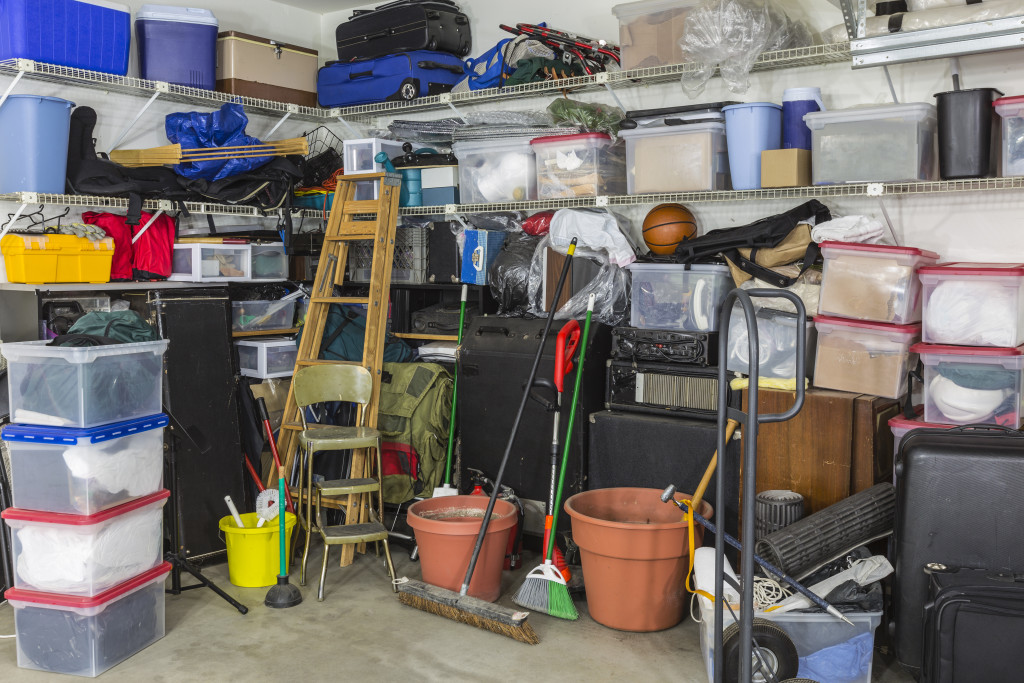Americans live in clutter. It is a fact that many households across the nation struggle with a mess because people own too much stuff. That is why home organization shows like “Tidying Up with Marie Kondo” and “Hoarders” are so popular. People crave control and order. They found pleasure in seeing the chaos of clutter be arranged into neat piles.
A Nation of Mess
The problem is massive. A previous survey found that 6 percent of American adults admit that their home is “very” cluttered, and about 21 percent agreed that their space is “somewhat” messy.
Moreover, another survey revealed that up to 5 percent of the population has a hoarding disorder, a persistent mental health problem characterized by the person’s inability to discard or part with their possessions regardless of value.
The mess has negative effects on a person’s life. It prevents them from inviting friends over to their house and becoming social, increasing their risk of isolation and loneliness. It can also interfere with productivity and general well-being. Previous studies have already linked clutter at home with increasing levels of stress.
A lot of people need help with keeping their lives in order and, contrary to popular belief, it is not actually easy. People can declutter and throw some stuff away but, unless major changes are made within their home and to their behavior, the mess will continue to accumulate.
As a response to the need to organize, many people are lending their expertise and a helping hand to those who are struggling to keep their clutter under control.
The Business of Uncluttering
The desire to be more tidy and organized presents opportunities for entrepreneurs to introduce and launch a business centered around helping people get rid of clutter. In the past couple of years, the industry of second-hand selling has risen in popularity, especially among young people. Those who have clothes or shoes or bags that they no longer want or use sell their stuff on ThredUp, Depop, Poshmark, Facebook Marketplace, eBay, or Craigslist. And there is a huge market for secondhand stuff now that more and more people are conscious of how their lifestyle impacts the environment.
Those who can build furniture can offer personalized storage solutions. There are custom closet organizing franchise opportunities waiting for those who want to start their own business.
The Professional Organizer
The clutter problem of many households nationwide has given birth to a new job title: the professional organizer.
There are people who have a better handle on their possessions and find enjoyment in creating order out of chaos. There are now professional organizers who will go to a client’s house and develop a system that will prevent clutter from piling up again. It is not simply cleaning the house for the client. The professional organizer will figure out which organization solution is needed, guide the client declutter things that they no longer need, and provide instruction on how to navigate the space to keep it neat and orderly.
The Home Edit is a professional organizing duo that has gained famous fans including Reese Witherspoon and Gwyneth Paltrow. They have over a million followers on Instagram.
Life in Jeneral, founded by Jen Robin, has helped Kristen Bell and Shay Mitchell create order in their tea drawer and changing station respectively. The firm has around 300,000 followers on Instagram.
And, of course, Marie Kondo not only has two television shows on Netflix about tidying and organizing, she has also written best-selling books called “The Life-Changing Magic of Tidying Up: The Japanese Art of Decluttering and Organizing” and “Joy at Work: Organizing Your Professional Life.” Kondo also has her own line of household products.
How to Be a Professional Organizer

A professional organizer requires more than just passion for being neat and creating an order.
Many of those who turned their interest in organizing paid $299 for a provisional membership with the National Association of Productivity & Organizing Professionals (NAPO). It requires members to take three courses on organizing and NAPO’s code of ethics. Going through the training allows starters to gain an understanding of their role as professional organizers. It also allows them to consider if this really is worth the career change.
The group also provides opportunities for networking to grow members’ clientele.
Most professional organizers gained clients through word of mouth and promoting their work on social media. By simply tagging a clean and organized office table or closet on Instagram, the business can build a following of potential clients.
Organizing can be a big business, especially now that people crave order amid the chaos. However, becoming a professional organizer takes work, knowledge, and, most importantly, passion.
